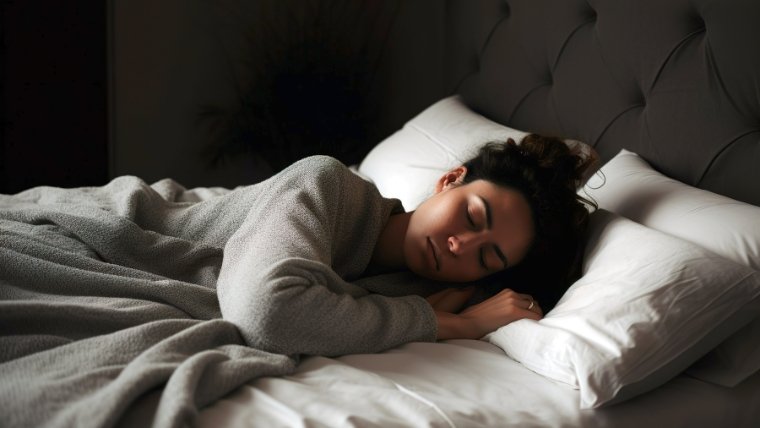
How to Sleep Better for Improved Health
Getting enough sleep is crucial for your overall health and well-being. If you’re struggling to get enough rest, you might be wondering how to sleep better for improved health. The good news is that making a few small changes to your routine can help you sleep better and feel more energized during the day. In this article, we’ll share some easy-to-follow tips that will improve your sleep quality and benefit your health.
Why Sleep Is Important for Your Health
Sleep plays a key role in both physical and mental health. It helps your body repair itself, strengthens your immune system, and supports brain function. Without enough rest, you may feel tired, stressed, or even become more prone to illness. So, learning how to sleep better for improved health is essential. When you get enough sleep, you’ll feel more focused, happier, and healthier overall.

How to Sleep Better for Improved Health: Effective Tips
There are many ways to improve the quality of your sleep. Below are some of the most effective strategies that can help you sleep better and enjoy all the benefits of a good night’s rest.
1. Stick to a Regular Sleep Schedule
One of the best ways to improve your sleep is by sticking to a regular sleep schedule. Going to bed and waking up at the same time every day helps set your body’s internal clock. Over time, this routine can make it easier for you to fall asleep and wake up naturally. If you’re unsure how to sleep better for improved health, this simple habit is a great place to start. Try to go to bed and wake up at the same time, even on weekends, to keep your body’s rhythm consistent.
2. Create a Relaxing Bedtime Routine
Your bedtime routine is another key factor in how well you sleep. Before bed, take some time to relax and unwind. You can read a book, listen to calming music, or try deep breathing exercises. Avoid activities that are too stimulating, like watching TV or using your phone, as they can make it harder to fall asleep. Creating a relaxing routine tells your body that it’s time to wind down and prepare for sleep, which is an important part of how to sleep better for improved health.
3. Limit Caffeine and Sugar Intake
Caffeine and sugar can both affect the quality of your sleep. Caffeine is a stimulant that can keep you awake, so try to avoid drinking coffee, tea, or energy drinks later in the day. Similarly, consuming sugary snacks or drinks close to bedtime can cause a spike in your energy levels, making it harder to fall asleep. To improve your sleep, limit your intake of caffeine and sugar, especially in the afternoon and evening. By making this change, you’ll be closer to how to sleep better for improved health.
4. Make Your Sleep Environment Comfortable
Creating a comfortable sleep environment is essential for good rest. Ensure your bedroom is quiet, dark, and cool. You might want to use blackout curtains to block out light, or a white noise machine to reduce distracting sounds. Make sure your mattress and pillows are comfortable and supportive. A restful environment plays a significant role in how to sleep better for improved health. When your surroundings are comfortable, your body can relax, making it easier to fall and stay asleep.
5. Get Regular Exercise
Exercise is not only good for your body; it also helps you sleep better. Regular physical activity can reduce stress, improve mood, and promote deeper sleep. However, try to avoid exercising too close to bedtime, as this can be energizing and make it harder to sleep. Instead, aim for moderate exercise earlier in the day, such as walking, jogging, or yoga. Exercise is an important part of how to sleep better for improved health.
6. Manage Stress and Anxiety
Stress and anxiety are common reasons people have trouble sleeping. If your mind is racing with worries or concerns, it can be difficult to relax enough to sleep well. To improve your sleep, try relaxation techniques like meditation, mindfulness, or journaling. These practices can help reduce stress and calm your mind, making it easier to fall asleep. By managing stress, you’re taking another important step in how to sleep better for improved health.
7. Avoid Napping During the Day
While naps can be refreshing, they can also interfere with your nighttime sleep if you nap too long or too late in the day. If you find it hard to sleep at night, try cutting back on naps or limiting them to 20–30 minutes earlier in the day. By avoiding long naps in the afternoon, you’ll improve your chances of getting a restful night’s sleep. This simple change can be very effective in how to sleep better for improved health.
Conclusion: Take Action for Better Sleep
In conclusion, getting better sleep is possible with a few simple changes to your daily routine. By sticking to a regular sleep schedule, creating a relaxing bedtime routine, limiting caffeine and sugar intake, and making your sleep environment comfortable, you can improve the quality of your rest. Additionally, regular exercise, stress management, and avoiding late naps are all important steps in how to sleep better for improved health. By following these tips, you’ll be well on your way to better sleep and better health.




